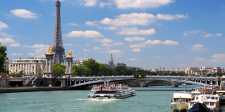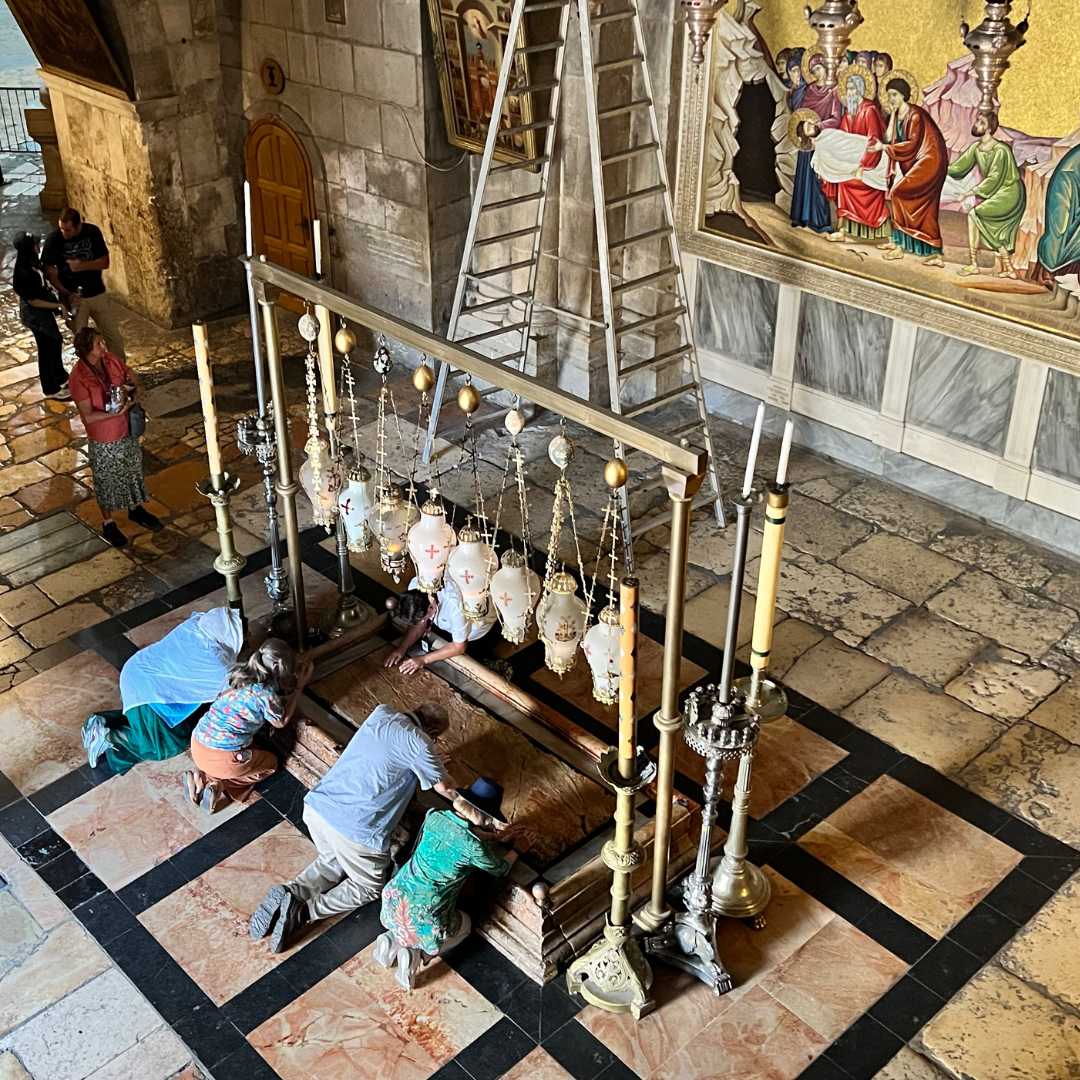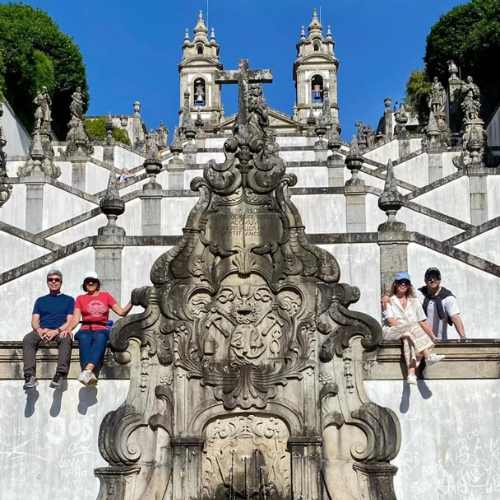Fatima, Lourdes, and Spain
Book a TripA Catholic Pilgrimage to Fatima Lourdes, and Spain with Select International
Our Lady of Fátima and Our Lady of Lourdes are two of the most iconic Marian apparitions in the Catholic faith. Whether you visit them individually or on the same trip, you will want to spend time at both. Fátima is located in central Portugal, North of Lisbon. Lourdes is located in the foothills of the Pyrénées. Each landscape is unique, but both are connected by the amazing accounts of each apparition and the messages that Our Lady shared there.
Spain lies between Portugal and France. While there are myriad Catholic sites to visit in all three countries, the word “pilgrim” has become synonymous in popular culture with the famed Camino de Santiago in Spain, where “peregrinos” flock to the Compostela de Santiago to venerate Saint James.
The unmatched beauty of Fatima, Lourdes, and Spain.
The Catholic history of France and the tremendous population of Catholics faithful (over 80%) in Portugal are well known. So, it stands to reason that both of these apparition sites would be well appointed. The gorgeous basilicas are lovely to walk around, pray, and celebrate Mass in. Fans of the Holy Rosary will enjoy the continuous prayer in the Grotto at Lourdes. And what Catholic wouldn’t want to visit the site of the famed Miracle of the Sun?

Lourdes
Come and see the Grotto where Our Lady first appeared to St. Bernadette. While here, pray the rosary, bethe in the famous baths, and take part in the candlelight procession.

Fatima
Visit the place where the Angel of Peace prepared the way for Our Lady and the place where she appeared to St. Jacinta, St. Franciso, and Venerable Lucia dos Santos.

Santiago de Compostela
Whether you want to walk the Camino or simply visit the Compostela in Santiago, a Catholic pilgrimage to Spain is an incredible opportunity to connect with your faith.

River Cruise Pilgrimages
Fatima and Lourdes are popular extensions on may of our Catholic Pilgrimage Cruises. If you’d like to learn more about these unique trips, click HERE.
Why Choose Select International Tours for Your Catholic Pilgrimage to Fatima, Lourdes, and Spain?
Beyond simply visiting Our Lady of Fatima or Our Lady of Lourdes, Select International Tours curates experiences that enrich your pilgrimage and strengthen your faith by connecting you to the culture and deep Catholic heritage of France, Portugal, and Spain. Our knowledgeable and faith-filled tour hosts act as more than just group leaders. They provide insightful commentary throughout the journey, leading prayer and fostering a deeper understanding of each site’s historical and spiritual significance. Our local guides ensure you understand exactly what you see and the history involved. Here are some reasons is the perfect choice:

Rich and Unique Itineraries: Our tours are carefully crafted to take you to the most significant Catholic sites in Portugal, Spain, and France; places like Fatima, Santiago de Compostela, and Lourdes. You will also explore each country’s rich cultural history and taste its exquisite cuisine. Your tour is customized to your group leader’s exact specifications, which means you get a tour that no one else has.

Excellent Group Leaders: Many of the most prominent Catholic Clergy, evangelists, speakers, authors, and media personalities travel with Select International Tours. Your Group Leader works with us to craft a unique trip for you. Then, while traveling, they work with the best Local Christian Guides to ensure that you learn the history of each site, get time to pray and experience the religious and personal significance of visiting these places yourself.

Daily Mass and Time for Prayer: Confirmed Daily Mass at sacred sites throughout the journey is standard on a Select pilgrimage. We also build in time for prayer and veneration, to make sure that yours is a true pilgrimage. Every trip has a priest to ensure that you have spiritual guidance at every turn.

Experience the Culture and History: With Select International Tours, you have time to experience the local culture in unique ways while traveling. Your tour might include candelight procession, a wine tasting, or a Spainish cooking class. See the trip brochures for specifics.

Top Hotels and Luxury Coaches: Pilgrimage touring can be tiring, which is why we book the best centrally located hotels for your stay. You’ll also travel in comfort daily on modern private air-conditioned motor coaches.

Your Trip Supports Christians: A small portion of your pilgrimage fee with Select International Tours goes to the Select to Give Foundation, which ensures that Christian families can remain and thrive in the Holy Land.
SELECT PARTNERS WITH THE BEST CHRISTIAN GUIDES
Select International Tours only works with the best and most ethical guides in the business. We wouldn’t trust your trip to anyone we don’t trust.
We were most impressed by our tour guide and the bus driver. [Our Guide] was very knowledgeable, friendly, and truly concerned about our experience. [Our Driver] was a skilled driver through the narrow streets and busy highways.
Our guide for this trip was amazing as well. He was very knowledgeable and helpful. Guiding a group of 40+ people had to be so difficult, but I appreciated everything he did.
Our guide was amazing, so well informed and answered all our questions with excellent answers
Scheduled Fatima, Lourdes, and Spain Trips
We Are Always Adding New Trips
Finding exactly the right trip for you can seem challenging. It has to be the right duration, on the right dates, and it should be with a leader you trust. Lucky for you, Select constantly adds new trips to give you plenty of options. Click HERE to find a scheduled trip to join or to get notified as we add new trips. Or, better yet, give us a call at 1-800-842-4842, and we will help you find the perfect pilgrimage for you.
Frequently Asked Questions
Click to see more...
Everyone has questions before departing on a pilgrimage. Here are a few common questions that you might be asking.
What’s the Typical Duration of a Pilgrimage?
Our Catholic pilgrimages to typically range from 10 to 12 days, allowing ample time for spiritual reflection and exploring each site. However, Fatima and Lourdes are often extentions on other trips, so the timing may vary. Please see a brochure for details.
What’s the Best Time to Go?
Fatima and Spain are both in warmer locations and are best visited in the fall, winter, or spring. Since Lourdes is situated in the mountains of Southern France, fall summer, and spring are generally most mild.
What Physical Fitness Level Is Required?
A moderate amount of walking will be involved, so a basic level of fitness is recommended. Please see the activity level on the trip you’re considering to understand the amount of walking involved.
What’s Included in the Pilgrimage Cost?
Select International Tours offers all-inclusive packages that cover your flights, accommodations, meals, transportation within Mexico, entrance fees to all sites on the itinerary, and the expertise of our guides. We also offer land-only packages and optional extensions. See the trip brochure for more information.
What Should I Pack?
Comfortable walking shoes, modest clothing suitable for churches, a hat, sunscreen, and a refillable water bottle are essential. You may also want to pack a small Bible and any religious articles that hold personal significance. Be sure to watch some of our Two-Minute Travel Tips for more tips and tricks.
Are There Opportunities to Experience the Local Culture?
Absolutely! We incorporate visits to charming towns, historic landmarks, local markets, and many special experiences, allowing you to savor the rich tapestry of the local culture.
Lead a Custom Pilgrimage for Your Group






Focus on Your People, We'll make the Arrangements
Do you have a group of ten or more people that want to travel together? Let's partner and plan a trip! It's easy to get started.
- Pick a destination.
- Decide when you want to travel.
- Select will arrange all the details.
- Focus on enjoying your trip!
Are you ready to get started? All it takes is a phone call.







